- Home
- Neal Shusterman
Scorpion Shards Page 5
Scorpion Shards Read online
Page 5
She moved toward him again, then this shy, sweet girl slipped her hand into his jacket, and shirt, shamelessly rubbing his chest.
Michael gently grabbed her hand and placed it back down in her lap. “Better stop,” he said.
“Better not,” she whispered. She tried to snuggle up to him, but Michael stood up.
“Just go!” screamed Michael. “Get out of here!” But she did not move—so he reached down, picked up a clump of dirt and hurled it at her shoes.
Confused and humiliated, Melissa ran off in tears.
Good, thought Michael. Because there were worse things she could feel than humiliation.
Soon the sound of her footfalls faded, and Michael was left alone with his bloated, malignant urges. But those urges could be killed, couldn’t they? The sound of the crashing ocean made him think of that. Those soul-searing urges that ate him alive could be destroyed by one single step east. Right now anything seemed better than having to feel That Way anymore.
And so, before he knew what he was doing, Michael found himself leaning into the wind at the edge of the cliff, daring his balance to fail him, and gravity to pull him down to his end.
“Do you really think anyone cares if you jump?”
The voice came as such a shock, Michael almost did lose his balance. He stumbled backward, away from the cliff, into the grass. His life did not so much flash before his eyes, as slap him in the face.
“If you jump, people might freak, but they’ll forget soon enough,” said a voice that was dense and wet, like liquid rubber. Lourdes Hidalgo lumbered out from behind a bush like a buffalo, and Michael wondered how long she had been watching.
In truth, Lourdes had been watching from the moment Michael had brought Melissa to the bluff. Lourdes enjoyed watching the other kids make out—and wasn’t ashamed of it either. She had enough things to feel ashamed of—peeping was low on her shame list.
“I don’t care if everyone forgets me,” said Michael. “I’m just sick of feeling This Way, okay?”
“What way?”
“You wouldn’t understand.”
“How do you know?”
Michael looked down at the bulge in his pants. They were too tight down there, as always, and in this warped little moment, he didn’t care who he told or how dumb it sounded.
“Do you know what it’s like to feel totally crazed all of the time? To wake up That Way, and go to class That Way, and not be able to sleep at night because of Those Thoughts going through your head, and then when you do sleep, to be invaded by Those Kind of dreams? They say we got hormones, right? Well, I don’t have hormones, I am a hormone—one big mutated hormone with a thousand hands and a million eyes. It’s like that hormone has eaten me alive, and there’s nothing left of me. Do you know how that feels?
Lourdes, to her credit, took the question very seriously. “No,” she said. “But I do know what it’s like to be fat. So fat that I can’t sit down in a movie theater. So fat that I have to ride in elevators alone. So fat that when I take a bath, there’s no room for any water in the tub. If anyone should jump into the sea, it should be me.”
Michael shrugged, feeling embarrassed. “Naah. You’d probably bounce.”
Lourdes considered this. “Or splat like a water balloon.”
“Gross!” Michael looked at Lourdes. She was truly hideous to behold, even in this dim light.
Lourdes smiled at him and Michael backed off. Was this a trick? Was she just after him like all the other girls? After all, she could not be immune to his full-moon effect, could she?
“Nice try,” said Michael. “I’m not going to kiss you, so get lost.” He turned toward the edge of the cliff again, contemplating it.
“Kiss you? I don’t want to kiss you, your breath smells like onions.”
This got Michael’s interest. “What do you mean you don’t want to? Don’t you find me irresistible?”
“I can resist you just fine,” said Lourdes. “I mean, you don’t use enough deodorant, your clothes are ugly, your hair is stringy—”
Michael grinned, unable to believe his ears. “Go on! Tell me more!”
“Let’s see. You’ve got a crooked lower tooth, your eyebrows are like caterpillars, you got no butt at all . . .”
Michael practically jumped for joy. “That’s great,” he said. “Do you know how long it’s been since I’ve been able to talk to someone without them either wanting to beat the crap out of me, or make out with me? Do you know how long it’s been since I could talk to a girl without feeling you-know-how? This is great!” Michael could have gone on for hours contemplating the deep ramifications of their mutual lack of attraction, but hearing about how unattractive Michael found her didn’t seem to make Lourdes too happy. He looked at her swollen form and wondered how a girl could get this way.
“You know, you’d probably lose weight if you ate less,” offered Michael.
“I’ll tell you a secret,” said Lourdes. Her head rolled forward on her neckless body, and she whispered in her cotton-padded voice: “I haven’t eaten in months.”
“No way!”
“It’s true—not a bite, and still I get fatter. Almost a pound every day.”
“That’s wild!”
Lourdes smiled. “As wild as your man-eating hormone, maybe?”
They looked at each other, both beginning to realize that their similarities ran far deeper that they could have imagined—and then, without warning, the sky exploded.
A burst of green, and then a strange pink light lit up the heavens; it shook Michael and Lourdes to the core of their very souls.
“A supernova!” exclaimed Mr. Knapp, the science teacher. “My God! I think it’s a supernova!” He frantically cranked his telescope toward the constellation of Scorpius, then flipped through his astronomy book to identify the star.
In a matter of minutes, a star in the tail of the scorpion flared to a fourth the size of the moon. Michael and Lourdes stepped out from behind the lighthouse to see everyone crowding around Knapp, who compared his star chart to the heavens above him.
“Mentarsus-H!” he announced. “It says here that it’s sixteen light-years away—that means it blew up before most of you were born!”
Knapp immediately started to explain, “It took all those years for the light of the explosion to reach the earth. Like when you’re in the bleachers at the ball park, you see the player swing, but don’t hear the crack of the bat until a second later. Space is so vast that light takes years to get from star to star. That star blew up over sixteen years ago, but we’re just finding out about it now.”
While everyone else marveled at this grand cosmic display, Michael and Lourdes lingered beyond the fringe of the crowd—touched by the nova with an intensity none of the others felt. It was as if the light illuminated some part of themselves that had always been hidden in shadows.
“I have to go!” Michael suddenly exclaimed. “I have to go now!” He was already fumbling in his pockets for the keys to his van.
“I have to go with you,” said Lourdes, her eyes filling with tears she could not explain.
Yes! thought Michael. It had to be the two of them. They were both being drawn away—drawn west. They had to travel west because . . .
. . . Because there were others! Others who were like them.
The truth came to him as if he had known it all along.
Michael could imagine them now—all of them looking up at the supernova at this same instant, in places far away.
“I have room in the van for you,” said Michael.
“I have a credit card,” said Lourdes, “if we need money.”
They hurried toward Michael’s van, as if they could afford no lost time.
Now those people standing around the telescope and all the other people in their lives seemed meaningless and unimportant.
Michael turned the key in the ignition with such force the starter screamed as the engine came to life.
“Where do we go?” asked Lourdes.
“How will we know when we get there?”
But both of them knew there were no answers to such questions. In a moment they were gone, driving west, while their former classmates looked heavenward through a round patch of clear sky that was fixed over Montauk like an eye, staring unblinking into infinity.
Part II
Free Fall
4. THE SHADOW OF DESTRUCTION
* * *
THE SPLINTERING OF STONE.
A deafening rumble as a mountainside pounced upon an unsuspecting neighborhood below. Five homes were destroyed by the massive boulders, and Dillon Cole, his wrecking-hunger now fed, gripped Deanna Chang and collapsed in her arms.
In the dim light they sat on the mountainside, hearing the shouts from below as neighbors came out to help one another. Through it all, Deanna held Dillon tightly.
“Please let no one be hurt,” Dillon whispered desperately.
Deanna had watched in horror as the row of homes on this hill above Lake Tahoe was obliterated. She watched in horror . . . but not in fear. Even now, as she held Dillon, she wasn’t frightened. Her fears, which had been building for hours, vanished the moment Dillon satisfied his wrecking-hunger—and it had been that way every time.
In the four days since they had run from the hospital in San Francisco, Deanna had stood by as Dillon sent a driverless semi down a ravine; sunk an empty barge on the Sacramento River; and shorted out a switching station, plunging the entire community of Placerville into darkness. She knew she should have felt terror and revulsion at each of these catastrophes, yet, against all reason, a sudden peace always filled her in the aftermath. All that destruction didn’t feel real to her in those moments after—it seemed little more than a painted canvas before her.
But Dillon was real, and she always turned her newfound calm to him, comforting him and his conscience, which had a strong case for feeling guilty. She thought she was beginning to understand that strange calm: she was in the shadow of Dillon’s destruction now—and that was far less terrifying than being in its path—for if those horrible things were happening to someone else, it meant that they weren’t happening to her.
What remained in that swollen calm was a single question in Deanna’s mind.
How?
How does he accomplish these things?
She looked to the night sky—to the supernova that still shone in the heavens, as if it could answer her.
“Is it winking at you?” asked Dillon, turning to look at it as well. “Is it telling you all the secrets of the universe?”
Deanna shook her head. “It’s just telling me to go east.”
Dillon nodded. “I know.”
It was true. From the moment its light appeared in the sky, she and Dillon were falling east; carried by an irresistible current, like driftwood pulled toward a raging waterfall. Suddenly Deanna’s aching wrist and aching body didn’t matter. Her family didn’t matter—they seemed like people from a different lifetime and, aside from a single postcard to tell them she was all right, they had been shuffled far back in Deanna’s mind. All that mattered was moving east with Dillon—and all because of that star.
Maybe the others know more, thought Deanna. Oh, yes, she knew about The Others—they both did. Although they spoke of them only once, they knew that it was The Others who were drawing them east. It was Dillon who didn’t want to discuss them—as if this knowledge of The Others was too important a thing to say out loud.
Deanna could swear she could sometimes hear their voices in the rustling of leaves—see their faces in dreams she couldn’t quite remember. She thought to tell Dillon, but thought better of it.
Far below, at the bottom of the hillside, an ambulance could be heard arriving at the scene of the rock slide.
“No one was supposed to get hurt . . . ,” said Dillon, squeezing his eyes tightly shut.
Deanna pushed the sound of the ambulance out of her mind. Instead she focused on Dillon—how he needed her and how she needed him to keep her fears away. How strong they were together.
A trickle of pebbles fell past them on the dark hillside, settling in the aftermath of Dillon’s rock slide.
“I don’t understand how you did it,” she asked him. “All you did was throw a stone . . .”
“It wasn’t just a stone,” he told her. “It was the right stone.”
But it was still beyond Deanna to understand just what he meant by that. He had thrown a stone, and that stone had begun an inconceivable chain of events—his stone hit another, which then rolled against a large boulder, and in a few moments the whole mountainside beneath them was falling away before their eyes. It would have been wonderful, if it wasn’t so horrible.
“Do you hate me, Deanna?” Dillon asked. “Do you hate me for the things that I do?”
Did she hate him? She probably ought to hate him, but how could she when he was the only one who didn’t run from her? How could she hate him when he treasured every ounce of comfort she gave him? The more he needed her, the more she loved him—she couldn’t help it. Whatever you do, I’ll forgive you, Dillon, she said to herself, because I know the goodness inside you—even if no one else can see.
But to him, she only said, “No, I don’t hate you.”
When Dillon heard her words, he relaxed—as if her feelings for him were all that mattered—as if Deanna was his only lifeline to the world.
Now that the wrecking-hunger had been fed, he looked stronger in the dim nova light. He looked noble, and when he stood from her arms he somehow seemed larger than life. Now it was her turn to take comfort in him.
“Let’s go,” Dillon said. “I know a way to get money.”
She glanced toward the immense lake, where Tahoe’s casinos glittered just over the Nevada border.
“Casino gambling?” she asked.
“We don’t need a casino,” he answered. “All we need is a bar.” He reached out his hand and smiled. He was his old, tender self again. “Come on. I’ll show you something incredible . . . I’ll show you something magical!”
She reached out and gently took his hand, and he escorted her off the ruined mountainside.
A GUST OF WIND blew through the door of the roadside bar as they stepped in, sending a flurry of cocktail napkins to the sawdust-covered floor.
With the wrecking-hunger deeply satisfied, Dillon felt himself in control of his thoughts and actions. Deanna had seen him at his worst tonight, and now she would see him at his best. He would show her something special.
Dillon was tall, but his boyish features and the style of his conspicuous red hair made it clear he was underage. Still, no one seemed to care, and he had no intention of ordering drinks.
Most of the talk around the bar was about the rock slide.
“Did you hear?” the regulars were saying to one another. “Five homes got flattened. Summer homes mostly, so no one was in ’em . . . except of course for the Barnes’ place, where a boulder the size of a Buick tried to come down the chimney like friggin’ Santy Claus.”
“Sadie Barnes got a concussion,” told one old-timer, with wide eyes as if he were telling a ghost story. “Jack Barnes, well, he might lose a leg. Still too early to tell.”
Dillon grimaced and tried not to think about it. He caught himself glancing at Deanna’s bruised wrist, silently tallying all the injuries he had caused and cursing himself for it.
In the many quiet hours alone with Deanna, he had told her every last thing he had done since the wrecking-hunger had come two years ago. He had told her how it started—not so much a hunger, but an itch; a tiny little urge to break things, which grew with each thing he broke. He had told her how his parents eventually died of “broken minds,” before Dillon understood what his touch did to people, and how he had wandered for a whole year alone. Deanna took great pains to listen and not judge. Dillon had no words to tell her how special she was.
He led Deanna to the back of the bar, where an old, worn pool table sat in an alcove. Two guys were finishing a game of eight
-ball. They were cowboy types—early twenties, talking about fortunes won and lost in the Tahoe casinos that day. One of them was bursting with energy, because his wallet was bursting with cash. He would be Dillon’s target.
“Watch this,” Dillon whispered to Deanna. Dillon had only played pool once, years ago. Even then he had found it about as challenging as sorting mail into six different slots. He approached the cowboy with the stuffed wallet.
“I’ll play you a game,” offered Dillon, sounding naive and inexperienced. “I’ll play you for five dollars.” Dillon slapped five dollars down on the edge of the table. Cowboy and his friend laughed.
“Sure, buddy,” Cowboy said, treating Dillon like a child who had just asked for a quarter for a video game. “You break.”
Cowboy racked up the balls, and Dillon broke, while Deanna watched from a peeling red vinyl chair.
The game took five minutes. It was less than magical; Dillon lost miserably. He glanced at Deanna, who was beginning to look nervous.
“One more game!” insisted Dillon. “Double or nothing.”
Cowboy agreed, and easily beat Dillon a second time. The smile slipped from Dillon’s face now. Deanna came up to him and whispered, “Don’t be dumb—we’re almost out of money.”
“Don’t worry about it,” he said loudly enough for the others to hear. “I feel lucky, okay?”
Deanna rolled her eyes and stepped away, leaning against the wall.
Cowboy won the third match and was all full of himself. Dillon, on the other hand, looked pathetic and desperate. He took out his wallet and angrily slapped it down in front of the cowboy.
“All of it,” said Dillon. “I’ll play you for all that’s in my wallet for all that’s in yours.”
Cowboy grinned out of the corner of his mouth.
“Dillon, let’s get out of here,” said Deanna. “It’s not worth it.”
“I don’t leave a loser,” said Dillon.
Cowboy smiled even wider. The picture here was clear; a young kid trying to impress his girlfriend—willing to go to ridiculous extremes to avoid being completely humiliated. And that was exactly how Cowboy intended on leaving him; completely humiliated, not to mention broke.

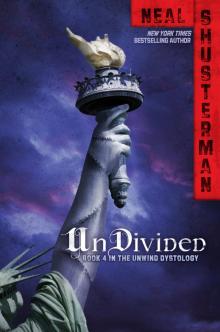 UnDivided
UnDivided UnBound
UnBound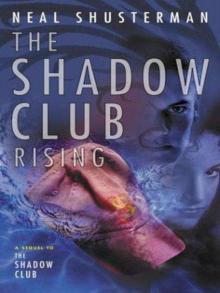 The Shadow Club Rising
The Shadow Club Rising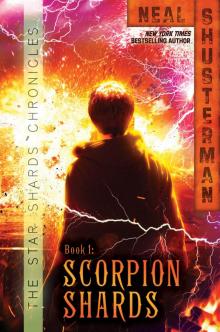 Scorpion Shards
Scorpion Shards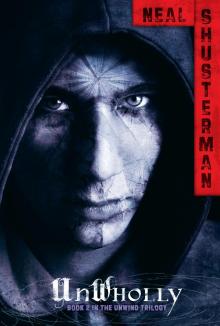 UnWholly
UnWholly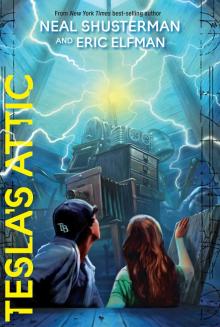 Tesla's Attic
Tesla's Attic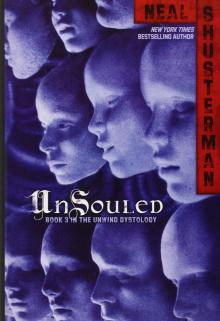 UnSouled
UnSouled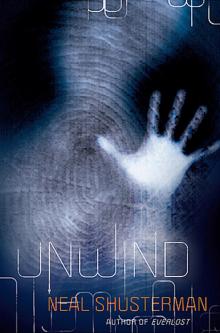 Unwind
Unwind Violent Ends
Violent Ends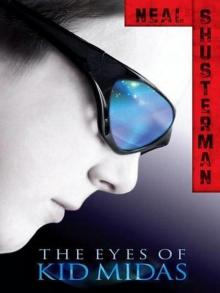 The Eyes of Kid Midas
The Eyes of Kid Midas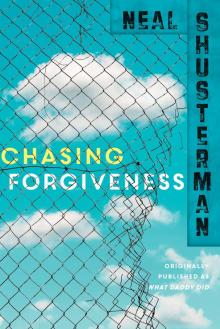 Chasing Forgiveness
Chasing Forgiveness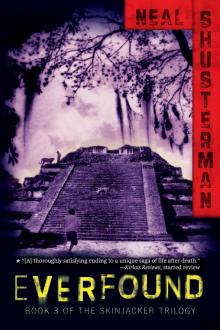 Everfound
Everfound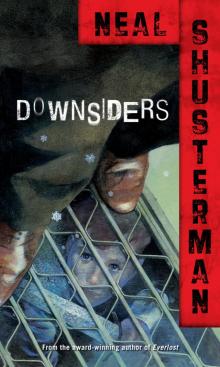 Downsiders
Downsiders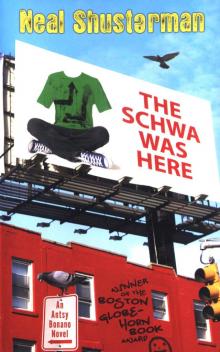 The Schwa Was Here
The Schwa Was Here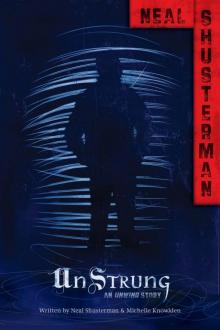 UnStrung
UnStrung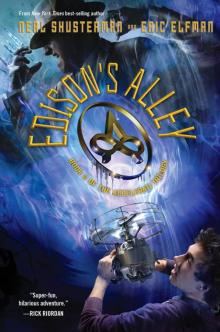 Edison's Alley
Edison's Alley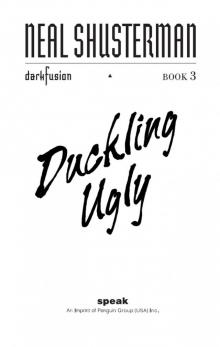 Duckling Ugly
Duckling Ugly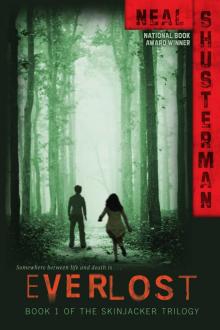 Everlost
Everlost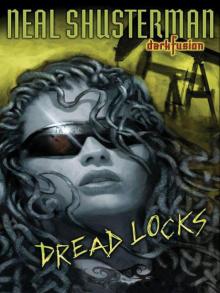 Dread Locks
Dread Locks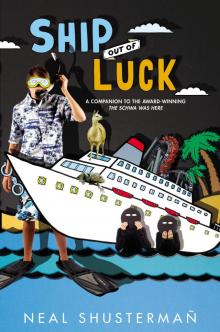 Antsy Floats
Antsy Floats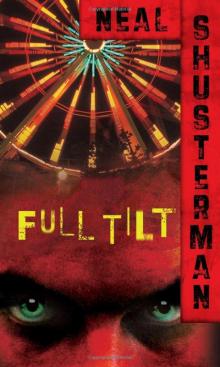 Full Tilt
Full Tilt Thunderhead
Thunderhead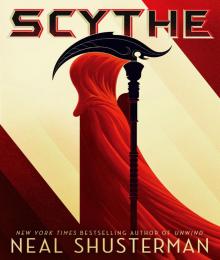 Scythe
Scythe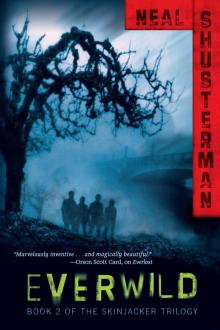 Everwild
Everwild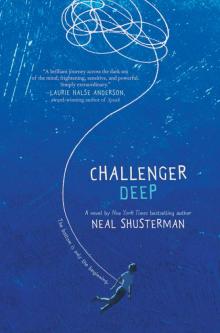 Challenger Deep
Challenger Deep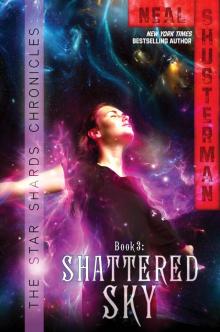 Shattered Sky
Shattered Sky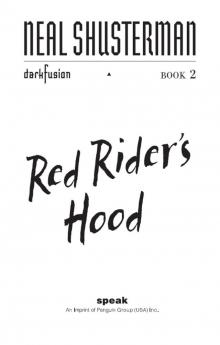 Red Rider's Hood
Red Rider's Hood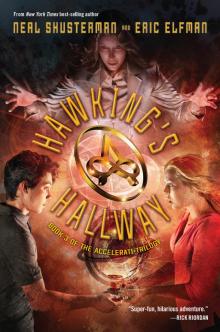 Hawking's Hallway
Hawking's Hallway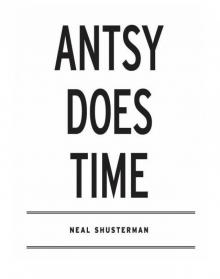 Antsy Does Time
Antsy Does Time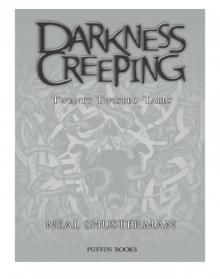 Darkness Creeping: Twenty Twisted Tales
Darkness Creeping: Twenty Twisted Tales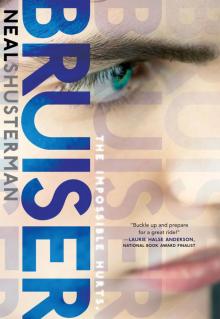 Bruiser
Bruiser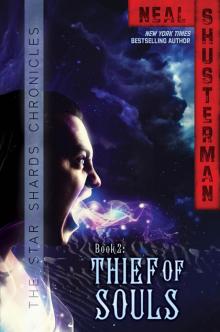 Thief of Souls
Thief of Souls The Toll
The Toll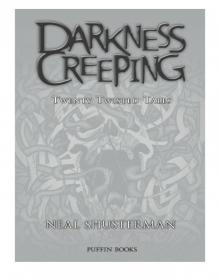 Darkness Creeping
Darkness Creeping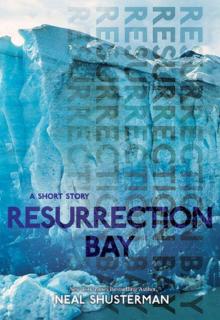 Resurrection Bay
Resurrection Bay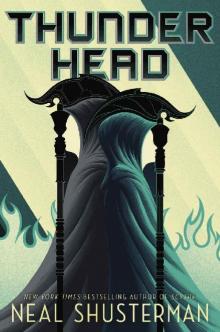 Thunderhead (Arc of a Scythe Book 2)
Thunderhead (Arc of a Scythe Book 2)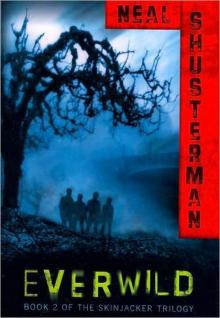 Everwild (The Skinjacker Trilogy)
Everwild (The Skinjacker Trilogy)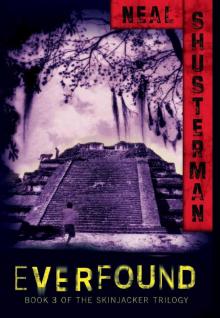 Everfound s-3
Everfound s-3 Edison’s Alley
Edison’s Alley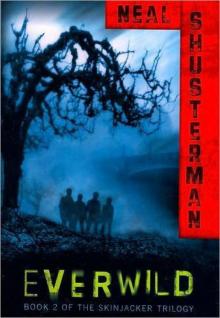 Everwild s-2
Everwild s-2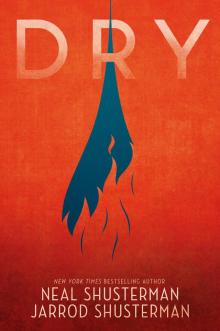 Dry
Dry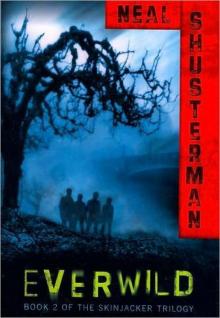 Skinjacker 02 Everwild
Skinjacker 02 Everwild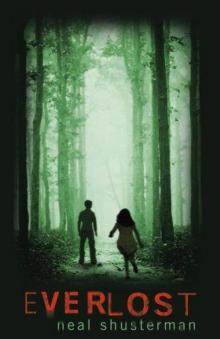 Everlost s-1
Everlost s-1